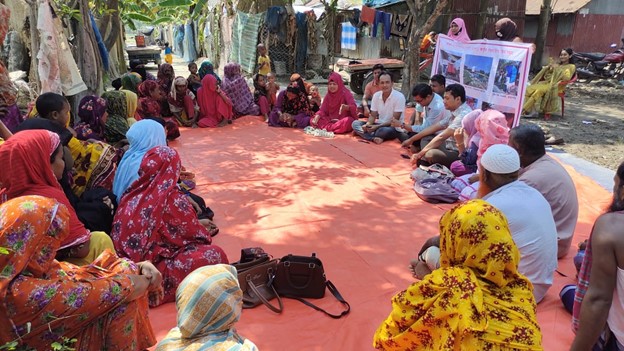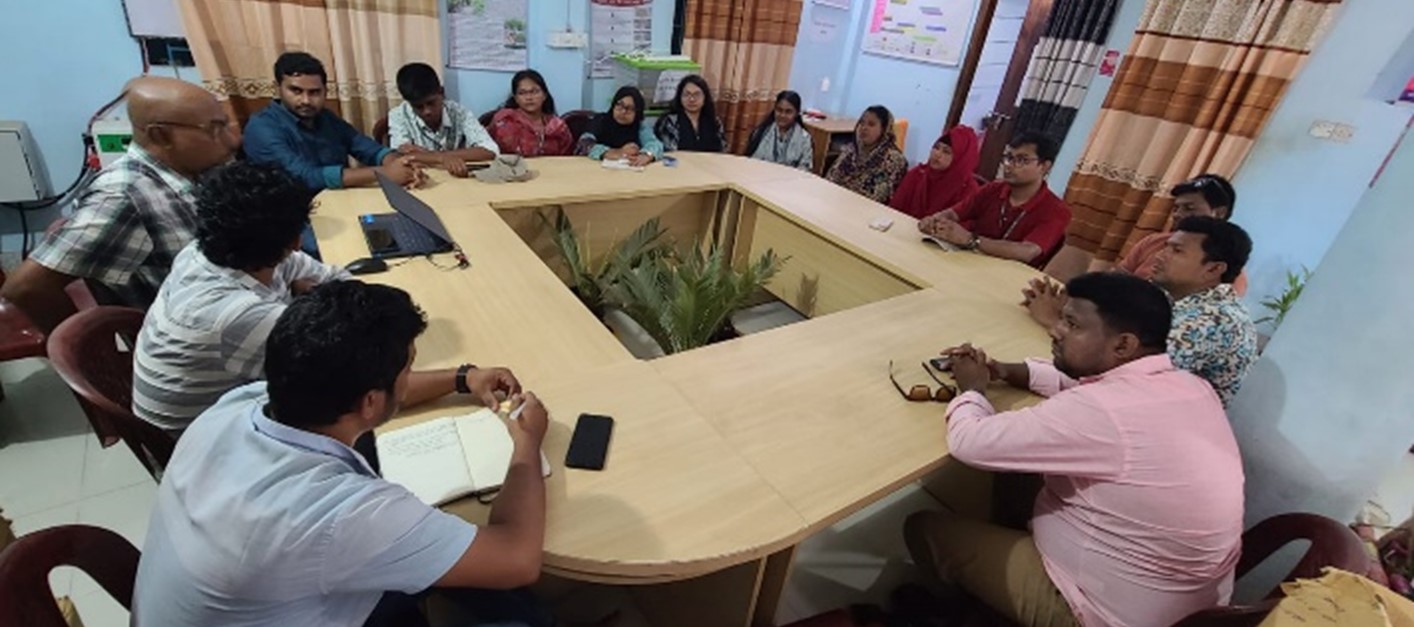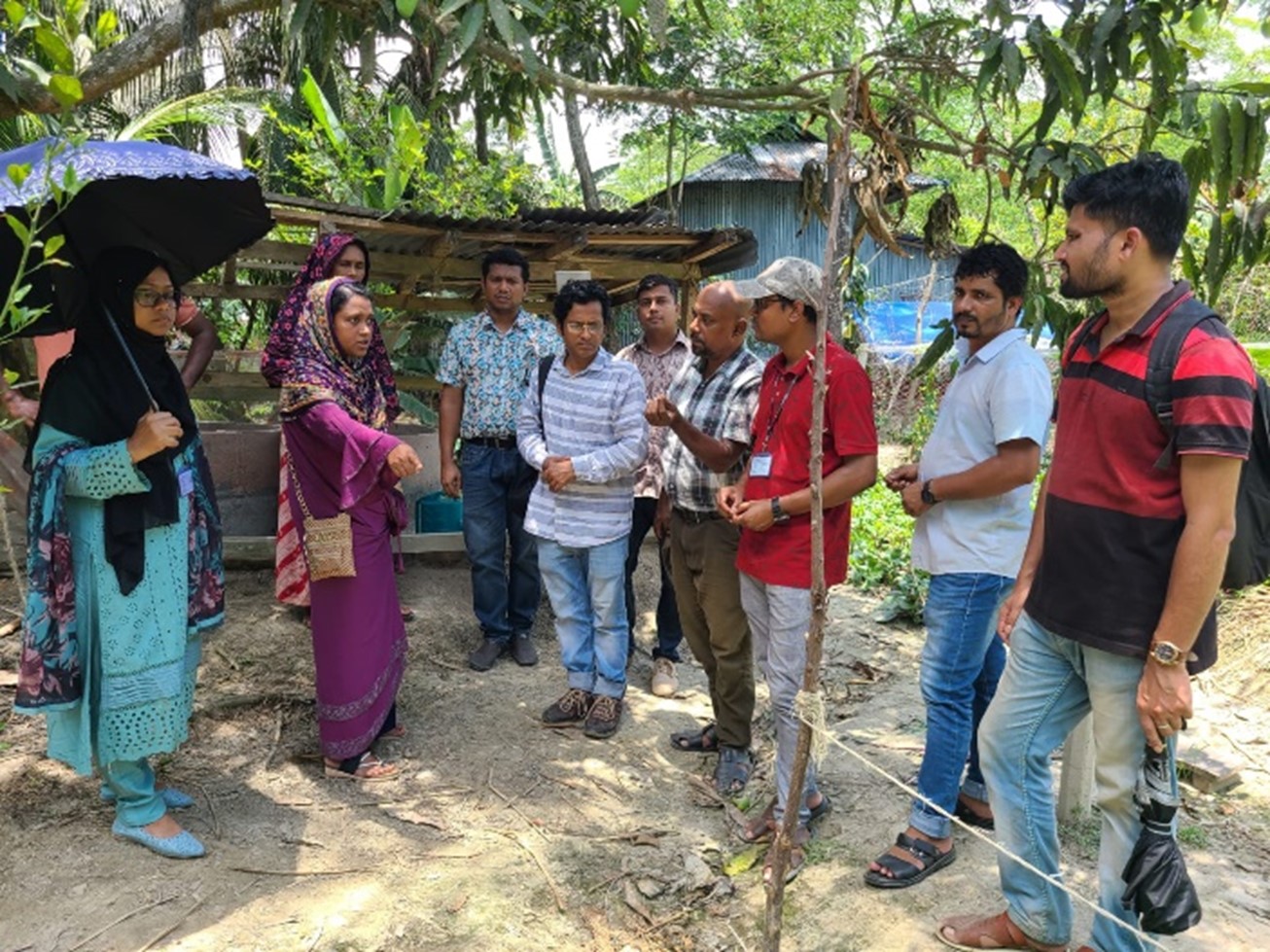
Community leaders from Mongla shared their experience in developing People’s Adaptation Plans with residents of informal settlements in Kuakata, another secondary city in Bangladesh where the GCA is collaborating with BRAC to facilitate locally led adaptation planning, to inform investments by the Asian Development Bank’s Coastal Towns Climate Resilience Project.
Three residents of Narikeltola Guccho Gram, one of the most climate vulnerable settlements in Mongla, visited communities in Shatghar and Poshchim Panjupara in Kuakata on 14 and 15 May 2024, to exchange experiences on their adaptation planning journey.
Champa Khatun, Rexona Khatun and Md Parvez visited Shatghar, where 60 households were resettled by the Bangladesh Red Crescent Society after Cyclone Aila in 2008. Proximity to the shoreline and the lack of drainage systems makes the settlement highly vulnerable to heavy rainfall, cyclones and storm surges. Where they exist, drains are clogged with waste and no longer functional, and roads are damaged, severely restricting movement during the rainy season, especially for children, pregnant women, and the elderly.
“We identified drainage and roads as priorities in our adaptation plans,” said Honufa Begum, Convener of the Community Adaptation Committee in Shatghar. “We struggled initially to convince the Mayor to let us construct a drainage system, but finally succeeded in getting permission after several negotiations with him and the Ward Councilor, and after clearly defining the community’s future role in maintaining the drains.”

Work on road repairs and the construction of 80 meters of drains started in April 2024 with funding from the GCA/BRAC project and is expected be completed by June despite disruptions from Cyclone Remal.
The visitors from Mongla described their own experience in negotiating with the Municipality to invest in their People’s Adaptation Plans. “The availability of fresh water is our key challenge in Narikeltola,” said Rexona Khatun. “We identified the urgent need for a 100,000 liter water harvesting tank, but the main challenge was finding the space for the installation. After several negotiations with the Mayor and Ward Councilor, we agreed on a 20,000 liter tank and re-excavation of an existing pond instead.” Both the tank and pond re-excavation was also supported through GCA/BRAC project.
“The active engagement of the community in planning, implementation and maintenance convinced our Mayor to commit resources to our plans,” said Md. Parvez. “Resources from the Annual Development Fund were made available to install ten new raised toilets in Narikeltola Guccho Gram.”
The visit also provided an opportunity for the facilitation teams from BRAC in both cities to exchange experiences on organizing communities in groups, developing their technical capacity to identify and assess climate vulnerabilities, and to invest in their negotiation skills.
Community representatives from both towns also visited BRAC’s Adaptation Clinic in Mohipur, Kuakata, to learn saline and flood tolerant farming techniques like “sack gardening”, which can be implemented by urban communities.
